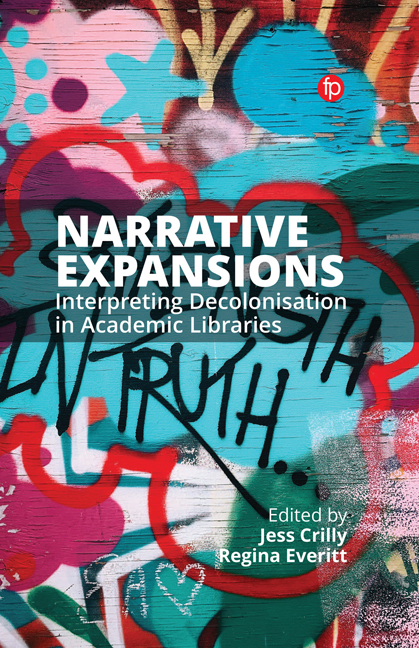7 - The Contribution of Library and Information Science Education to Decolonising
Published online by Cambridge University Press: 28 January 2022
Summary
Introduction
This chapter considers the contribution of library and information science (LIS) education to the ‘decolonising’ of our university curricula, and how students on LIS degree programmes can be supported to explore the concept of decolonising as students both in a higher education environment and in the workplace as LIS professionals.
There has been a growing agenda – shaped by both protest movements and intellectual debate – to ‘decolonise the university’, to draw attention to the colonial history of the campus and how higher education remains in the shadow of that colonialism. This process has included much reflection on what it might mean to ‘decolonise’ both the university (Bhambra, Gebrial and Nişancıoğlu, 2018) and its library collections (Dali and Caidi, 2021). However, our understanding of where LIS education fits into this discussion is arguably less advanced. This seems a little surprising, as LIS education is the academic discipline which bridges the gap between higher education and the LIS professions. This chapter is informed both by the author's experience as an LIS academic and by her involvement in a 2020 study, ‘Decolonising the Curriculum in the Faculty of Social Sciences’ by Williams et al., as part of her role as Co-Director of Equality, Diversity and Inclusion for the Faculty of Social Sciences at the University of Sheffield.
LIS as delivered in higher education tends to be situated within a broader social sciences school or faculty, and the reach of colonialism across the social sciences is widely acknowledged in the literature. As Williams et al. (2020) state, ‘The division of labour among the disciplines of the social sciences, for example, follows the distinction between the “modern” world of colonisers (Sociology, Political Science, Economics) and the “traditional” formerly colonised world (Development Studies, Anthropology).’ Although they observe that ‘much has been done to blur these geographical boundaries, which made sense in the age of empires’, Williams et al. argue that we are nonetheless still working with ‘these dichotomies (First World/Third World, Global North/Global South, Developed/Developing, etc.) in how we understand the disciplinary division of labour within the Social Sciences today’ (Williams et al., 2020, 7).
- Type
- Chapter
- Information
- Narrative ExpansionsInterpreting Decolonisation in Academic Libraries, pp. 91 - 104Publisher: FacetPrint publication year: 2021
- 2
- Cited by

